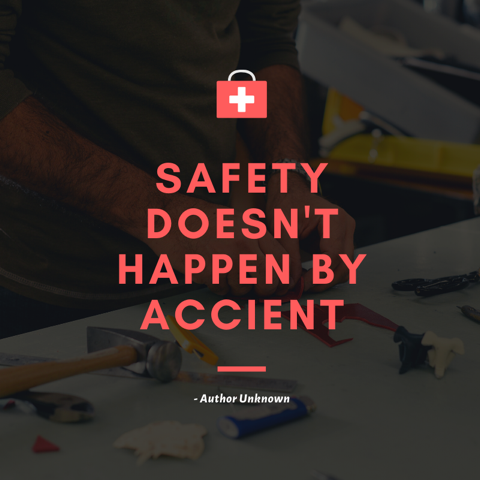Mike Hourigan, Negotiating Safety Motivational Speaker
- In Blog, Safety Speaker
If Safety is #1, What Comes Next?
In my talks as a Negotiating Safety Motivational Speaker, I often ask my audiences the following question: “So if safety is number one, what comes next?” The question is often met with blank stares, shrugs and sometimes humor, with answers including “Lunch,” “Going home,” or “Winning the lottery!”
What Does Come Next?
Truth is, I would argue that negotiating safety is the highest priority; higher than safety itself. In delivering motivational negotiating safety talks across the country, I have to admit that I have a fascination with construction sites, truck depots, manufacturing facilities, refineries and train yards.
Early in my career, I wore a hard hat and was familiar with terms such as PPE – personal protective equipment. I also saw the motivational safety signs. The trouble was that all of the signs didn’t translate to a safe environment. Co-workers got hurt, some badly, because they failed to incorporate a safety-oriented attitude to the job.
It was early in my career as well when I realized that safety is a negotiation between employer and worker and it is a two-way street. It is a pact and a commitment to a way of operating.
Safety is often seen as a burden to be carried by the worker or driver. In fact, the safety negotiation applies to every party involved in the task at hand. New or inexperienced workers may see signage telling them that safety comes first, but if training and supervision is lacking, or if the training is outdated or the equipment itself is faulty, the worker cannot be expected to take the blame for a safety violation or personal injury.
Safety negotiation implies that if there is an expectation of safety, a system has been put into place to achieve a safe environment. This includes the fact that realistic expectations have been built into the safety measures and procedures.
For example, unrealistically pushing construction deadlines, delivery performances, cargo handling or manufacturing output will invariably result in injuries. Even something as “simple” as back injuries caused by employees attempting to lift too much because of insufficient assistance, or as serious as a severe passenger train accident caused by excessive mandatory overtime, is a breakdown on the management side of the safety negotiation.
Negotiating Safety is a Full-Time Job
For the worker and the safety officer to have a successful safety negotiation, there must be a full-time awareness and mutual appreciation.
Workers have greater access to information than ever before and management must respect that. The internet has indeed made the safety negotiation a common “platform” where information on the latest safety strategies and equipment is within reach of everyone. Workers will ask intelligent safety questions in an environment receptive to such questions, and they will expect well thought-out answers.
On the other hand, management cannot allow the safety negotiation to be influenced by dangerous or socially unacceptable behaviors. These behaviors may cover an entire range of substance abuse issues, aggressive or bullying behaviors, workplace violence, intimidation or even improper use of distracting digital devices while on the job.
The safety negotiation is not about “you and me,” but everyone in the workplace. Safety violations are like ripples in a pond. What is done in one area will influence many others. Negotiate wisely.
Book Mike Hourigan, Motivational Negotiating Safety Speaker for your next industry meeting or trade convention.
For more information call today at: (704) 875-3030 or by filling out the form below.

Contact Safety Motivational Speaker
You may also like

Is Conflict Management Another Form of Negotiation Skills?
- 07/13/2024
- by Mike Hourigan
- in Blog



